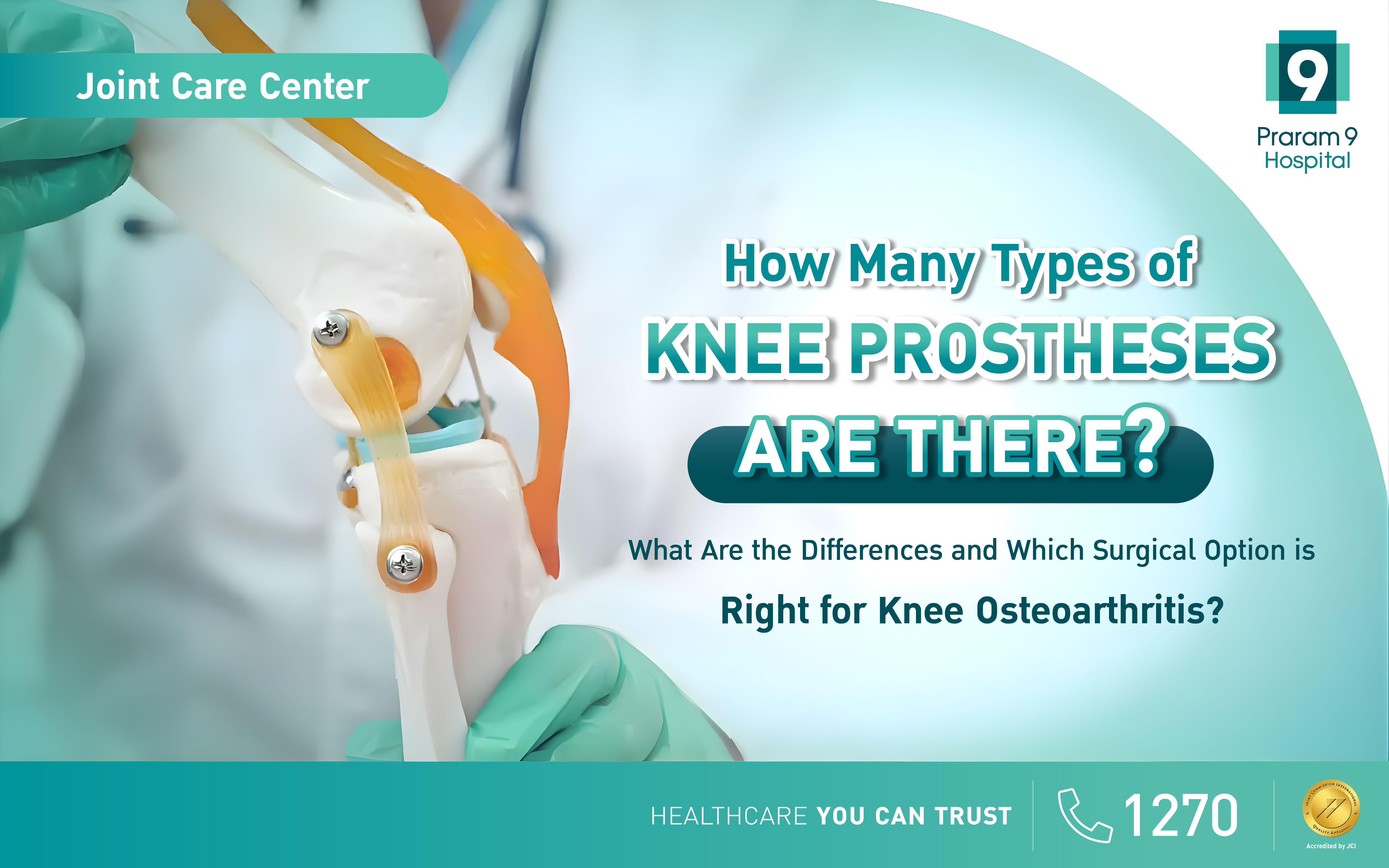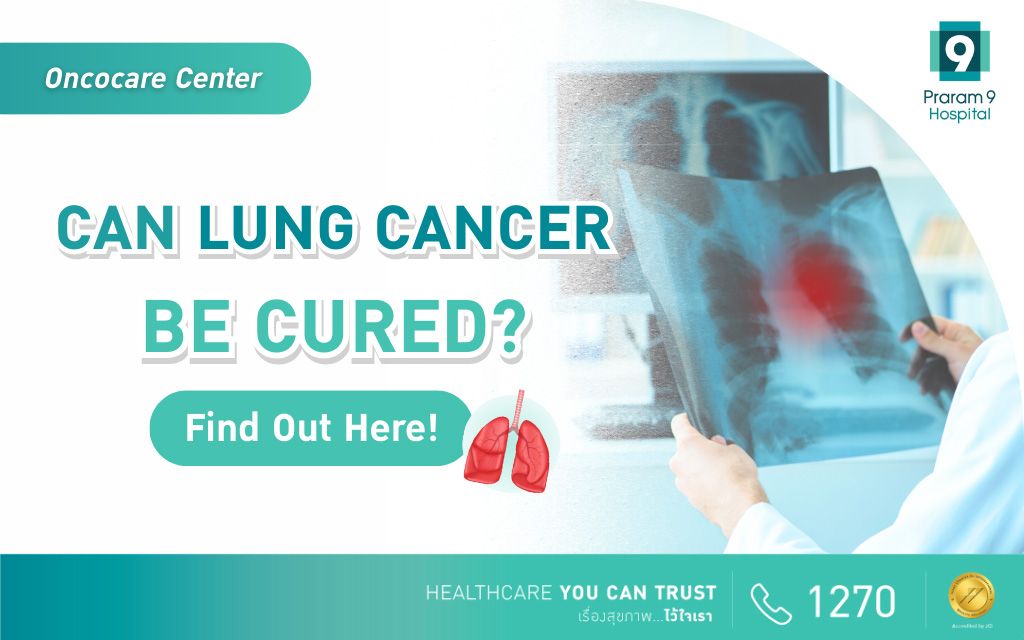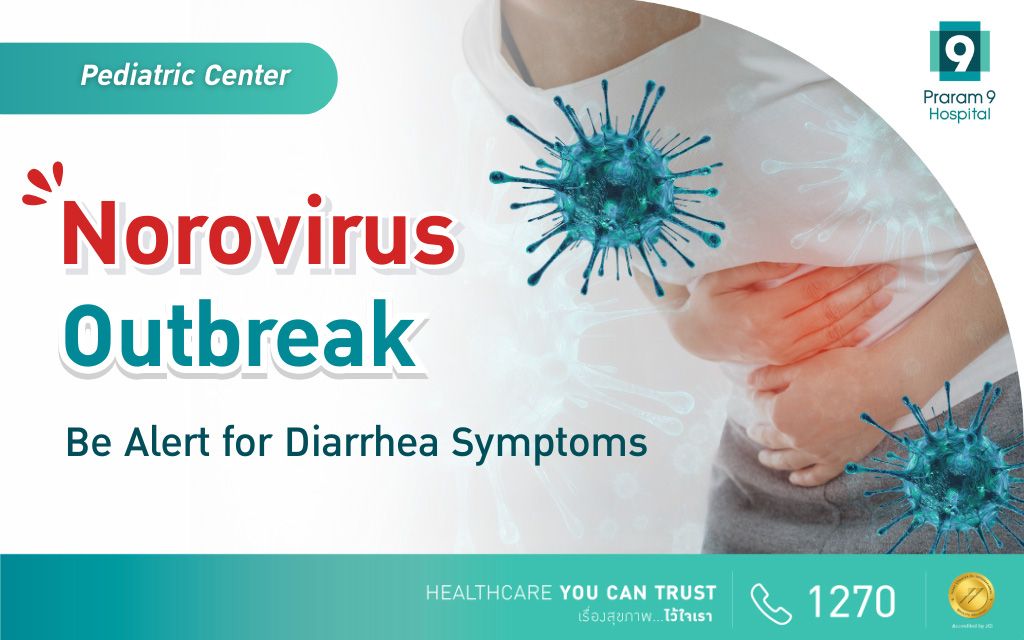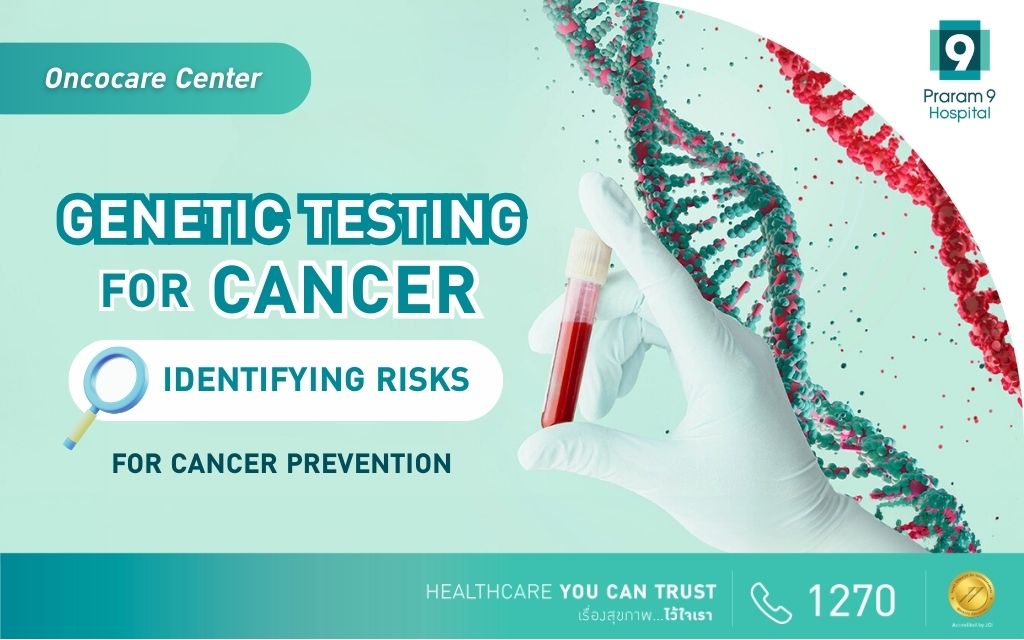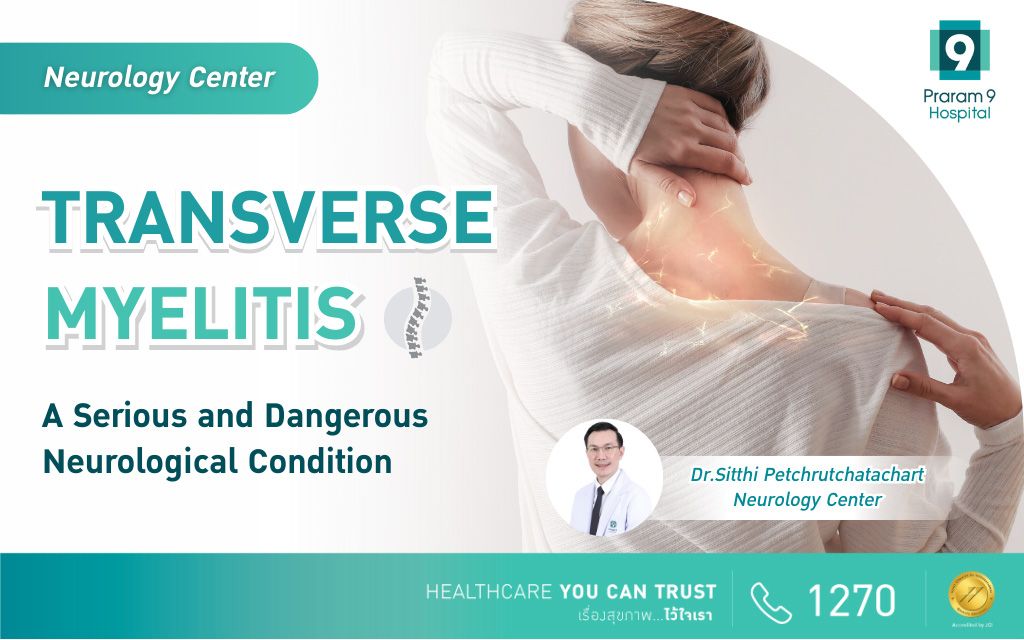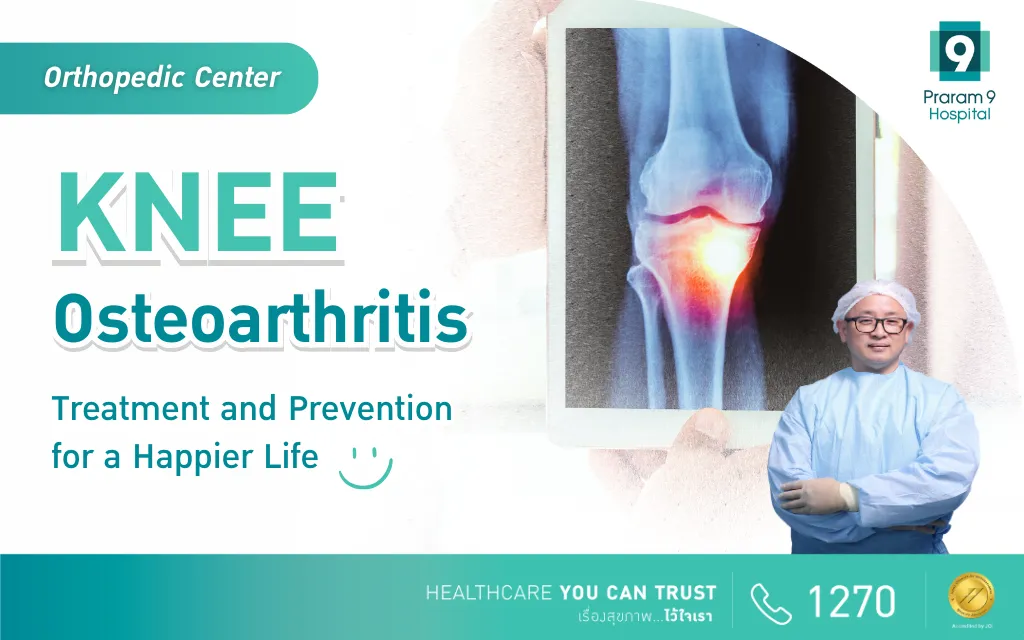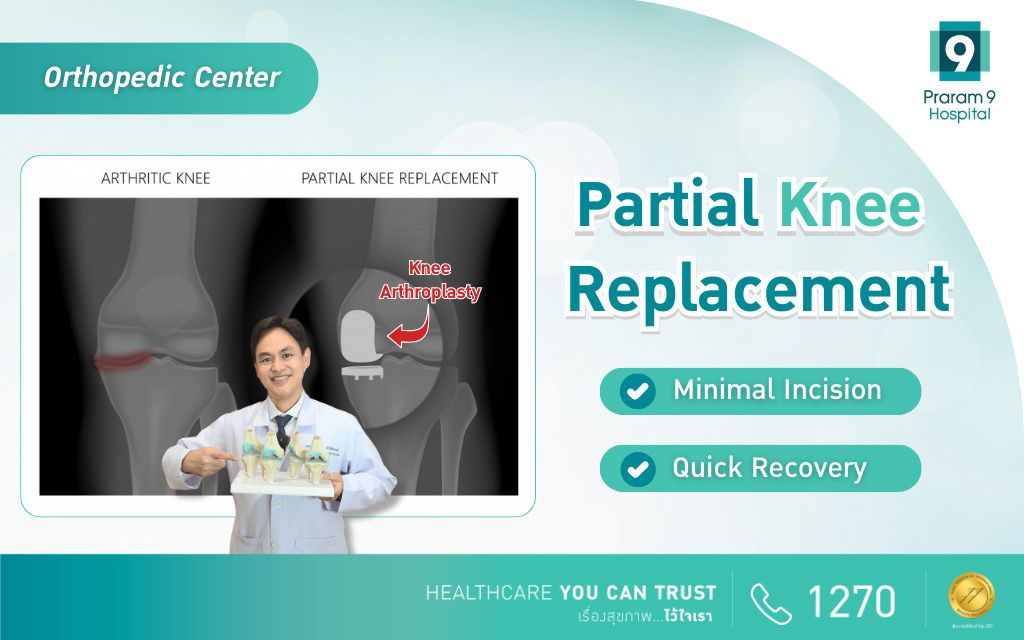Health Articles
Knowledge
Stomach Cancer
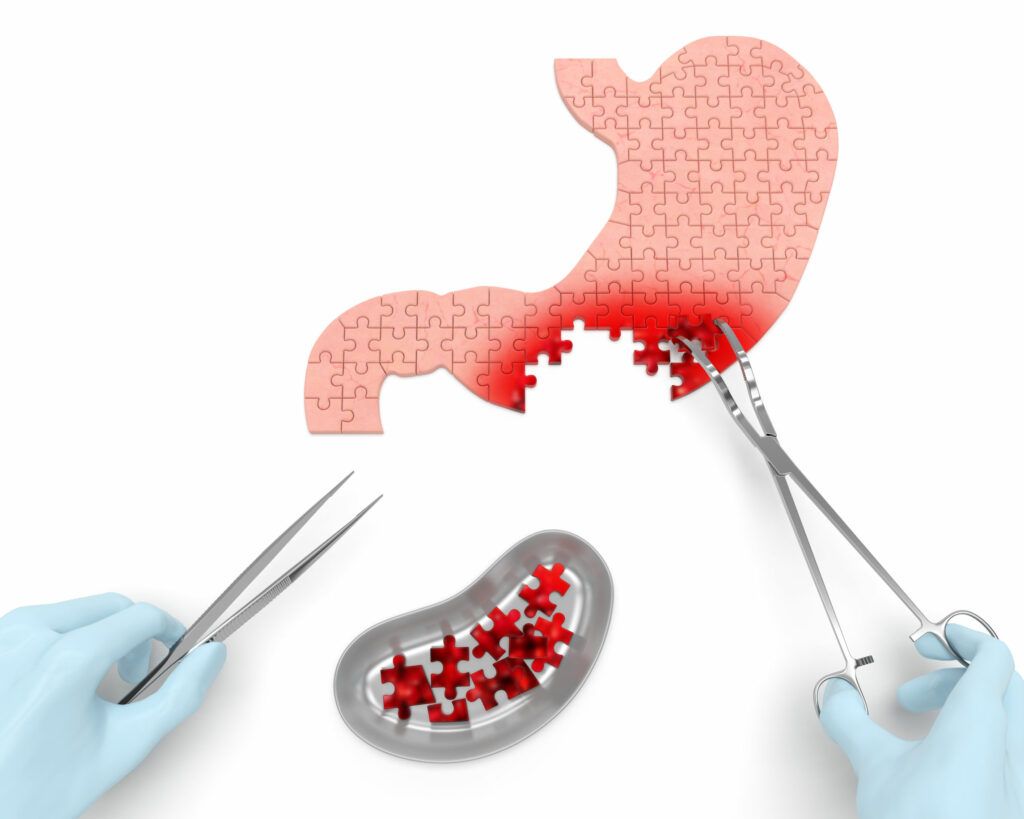
Stomach cancer is caused by the abnormal division of stomach mucosa cells that can cause the cancer. It can occur in every part of the stomach and can spread to other organs, such as the liver, pancreas, intestine, lungs, and ovary, including the lymph node.
Risk factors of stomach cancer
- Currently, the cause of stomach cancer is unknown. However, there are many factors that can increase the risk of developing the disease as follows:
- Age: When getting older, there is more chance of having stomach cancer.
- Gender: Males have a chance of having stomach cancer more than females by 2 times.
- Have a family member with stomach cancer.
- Race: More prevalent in Asian people than in Caucasian people.
- Food: Especially in foods that are preserved, salted and dried, and smoked, which increases the risk of stomach cancer. Having fresh vegetables and fruits can reduce the risk.
- Infected by Helicobacter Pylori, which is a disease that can cause inflammation and ulcer in the stomach and increase the risk of stomach cancer.
- Have undergone a gastrectomy or have a congenital disease, such as some types of anemia and chronic inflammation of stomach, which can increase the chance of stomach cancer.
- Occupation: Especially in jobs that require exposure to dust and some types of chemicals that cause more risk.
- Lifestyle: Smoking, drinking alcoholic drinks, or eat less vegetables and fruits.
- Obesity: Overweight males have a higher tendency of having stomach cancer. However, in females, there is no evidence that links obesity with causing stomach cancer.
Symptoms of stomach cancer
In the initial stage of stomach cancer, the symptoms might not show. However, when the stages develop, other similar diseases might occur, such as stomach ulcer or stomach flu. You should come to see the doctor when the following symptoms occur:
- Indigestion or uncomfortable in the stomach
- Flatulence after having a meal
- Feel slightly nauseated
- Loss of appetite
- Heartburn
In patients with developed symptoms, the following symptoms might occur:
- Feel uncomfortable in the stomach, especially in the upper and middle abdomen
- Blood in stool
- Vomiting, including with blood
- Weight loss
- Stomachache or flatulence after having a meal
- Fatigue
More information: http://praram-9-moderna-stg.i02ms7ouq4-pxr4kj5xv6gn.p.runcloud.link/en/medical_centers/cancer-center/

